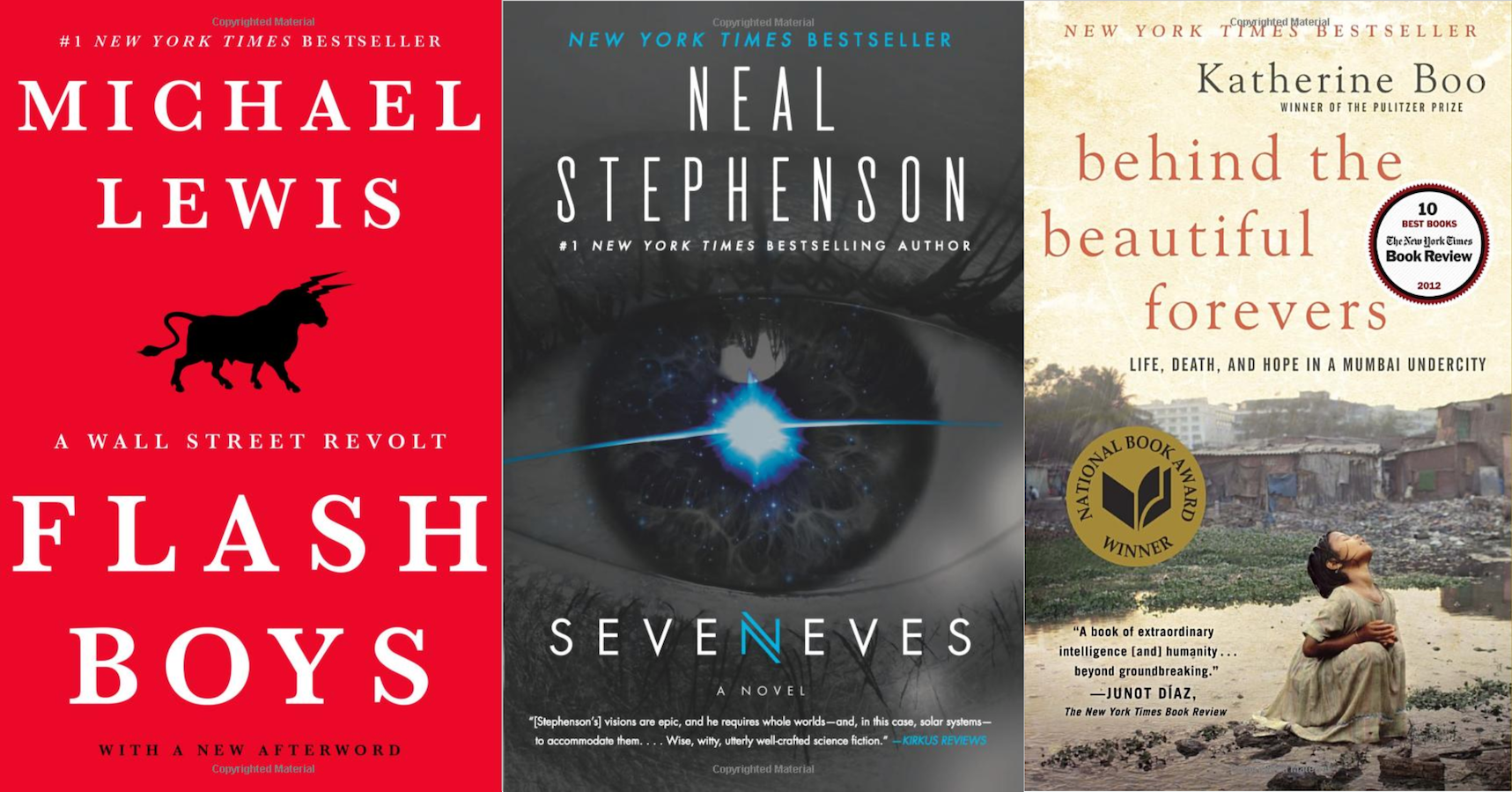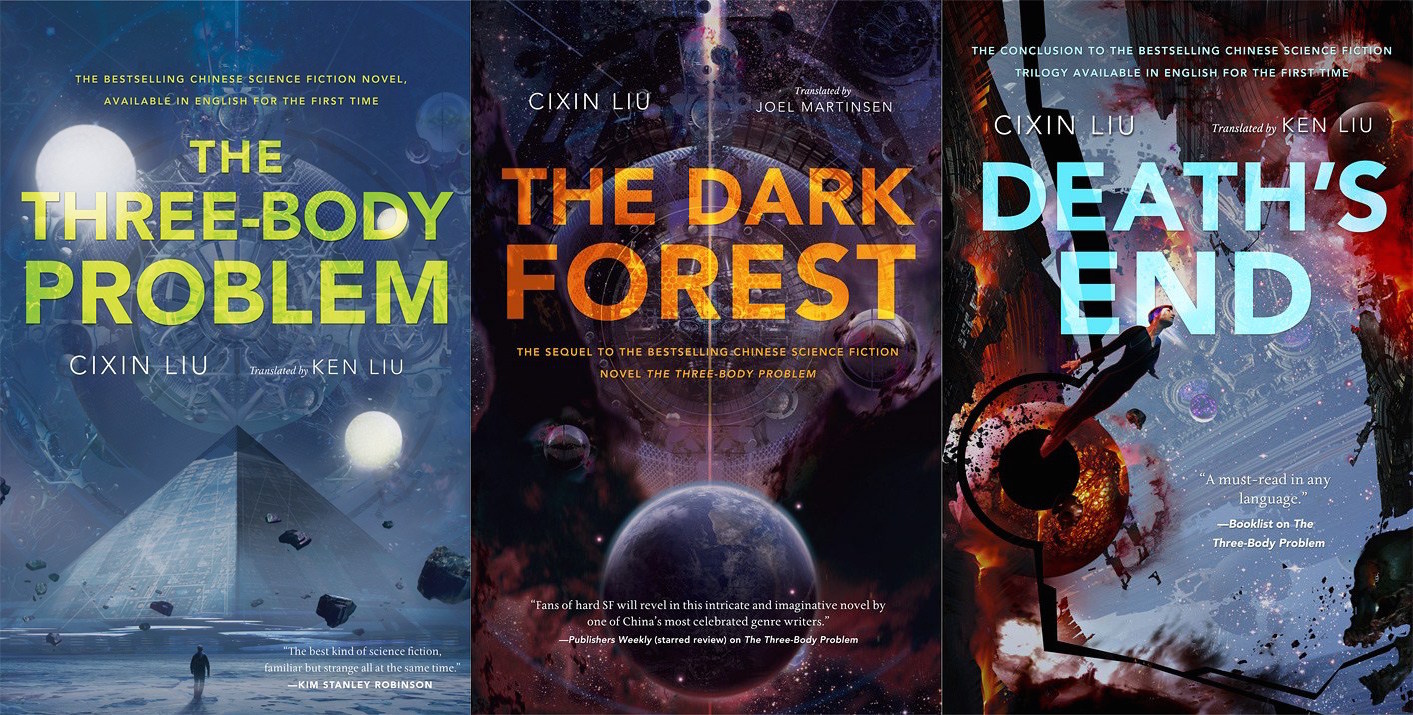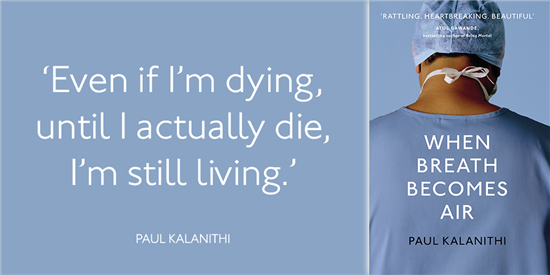Here’s a list of notable books I’ve read in 2016, that didn’t quite warrant a review, but deserve a mention nonetheless. I’ve taken the liberty to group them into broad genres that represent what I’ve been interested in this year.
Finance
A Simple Path to Wealth by J. L. Collins
Basically the book form of jlcollinsnh.com, which is a blog about financial independence. The articles he writes have a very sarcastic and humorous tone to them that cut right into the ridiculousness of the typical American’s financial situation (overconsumption, debt, decades of work). To start, his How I failed my daughter and a simple path to wealth explains the simplest possible plan to follow that will lead anyone on the path to financial freedom. His Stock Series is the most comprehensive and convincing explanation I’ve come across for the theory behind index fund investing. Also check out How I lost money in real estate before it was fashionable for a hilarious and elucidating read on the folly of American homeownership.
Flash Boys by Michael Lewis
A riveting introduction to the advent of high frequency trading that exploded into the United States financial market within the last few years. Michael holds a very negative perspective on these firms, wherein he believes they scalp all trades in the market without providing and economic value back. The basic idea is that HFT firms pay to have the fastest computers and the shortest cables to the markets. When a buy order comes in (from anyone, you, me, a mutual fund manager, etc.), the firm’s algorithms process your order, rush to the nearby markets to buy up all the stock you want, and then sell it back to you for a slightly higher price. This adds up to millions and billions of dollars in profit for these firms. I have a friend in this business who strongly disagrees with this perspective, but I’m not informed enough to make a judgment either way.
Enough by John Bogel
John Bogel is the founder of the Vanguard Mutual Fund company, which was set up uniquely as a non-profit, owned by its customers who buy its mutual funds. His book explains the philisophical foundations of Vanguard, those being to work with integrity, reduce complexity in financials, and do a service by returning the wealth of finance back to the working and middle class of America.
World War II
Iron Coffins by Herbert A. Werner
A personal memoir by surviving Kriegsmarine U-boat commander Herbert Werner. It describes the Battle of the Atlantic in gritty detail from the perspective of the German U-boats, affectionately called iron coffins. Werner starts chronologically when he first enlists with the Kriegsmarine, goes through training, and is assigned to his first patrol in U-557. His early sorties in 1942 were the golden days, when German wolfpacks hunted the slow Atlantic convoys only lightly protected with outdated ships. But as the war continues, and the Allies continue improving their technology, the Atlantic theatre inexorably reverses its fortunes. Towards the end of the war, U-Boats leaving port had a less than 50% chance of returning alive, and in the final invasion of Normandy, U-Boats were ordered to kamikaze ram into Allied ships in a desperate attempt against the overwhelming odds.
Samurai! by Saburo Sakai
A translated memoir by one of the Imperial Japanese Navy’s only surviving flying aces, Saburō Sakai. Sakai downed some 64 allied planes throughout the Pacific War, and gained a legendary reputation among Japanese fighter pilots. The work offers a unique glimpse into the Pacific Theatre from the Japanese side. Their pilots went through a grueling training in a pilot school that demanded nothing less than perfection. In battle, the early Japanese successes were quickly offset by America’s sheer economic might and rapidly improving technology. By the end of the war, the once feared Zero was hopelessly outclassed both numerically and technologically by American Hellcats. It’s a wonder that Sakai survived throughout the war, where most of his fellow pilots, veteran and novice alike met their fates “honorably” in suicidal missions to protect their homeland.
Forgotten Ally: China’s World War II, 1937-1945 by Rana Mitter
Because America focused on the war with Japan and against Nazi Germany during WWII, our history books barely mention the significant role of China in the Pacific Theater. Add to that the Communist suppression of Chinese Nationalist achievements during WWII, and the result is that Chiang Kai-Shek’s role in WWII is barely mentioned in popular memory. This book attempts to explain that. It’s quite a depressing read, which explains the never ending hardships endured by the Chinese government and its military forces. Once Japan surrendered due to the Americans and the atomic bomb, victory was bittersweet as the nation immediately fell into a civil war with the Communists.
Engineers of Victory: The Problem Solvers Who Turned The Tide in the Second World War by Paul Kennedy
A recently(2013) published work by a Yale historian about the technological developments in WWII that enabled the Allied Nations to triumph over the Axis Powers. He goes in depth to research the development, implementation, and effects of assymetrical military technology on the course of the war.
Pacific Crucible by Ian W. Toll
The first in a trilogy that follows the Pacific Theatre of WWII in depth. He spends equal time talking about naval doctrine, naval technology, politics, and the actual battles of the early theatre, where the Japanese largely outmaneuvered the overconfident American Navy.
The Conquering Tide by Ian W. Toll
The second in the trilogy, describes the eventual turning of the tides, where the American economic might and the smartening of US naval command eventually began beating back the more clever and devoted Japanese.
The Rise and Fall of the Third Reich by William L. Shirer
This is the canonical book on the history of Nazi Germany, told by an American journalist who was present during Hitler’s rise to power and the early war years. Mixing knowledge from declassified Nazi documents with his own experience, Shirer expertly weaves together a complete story of the rise and fall of Nazi Germany. Hitler was a political, economic, and military genius that seized power and took on the world at a critical moment. That same genius led to a series of megalomaniacal blunders that doomed Germany’s fall.
Science Fiction
Death’s End by Liu Cixin
Actually the best book ever written. Full Review
Invisible Planets translated by Ken Liu
A translated anthology of Chinese science fiction short stories compiled by the translator of Liu Cixin’s first and third books. It also includes two works by Liu Cixin himself, the first being “The Circle” which is an extension of one of the Chinese dynastic mini-stories of The Three Body Problem. The second is “Taking Care of God” which examines the maturation of a scientific society, and how it could be that the societies themselves age and die off.
Seveneves by Neal Stephenson
Seveneves has been ridiculously popular this year, with reading list endorsements from the likes of Bill Gates and President Obama. It’s a hard science fiction work that hypothesizes what humanity would do right now in the event of an impending life-on-earth ending disaster. The first two thirds are quite good, showing a courageous effort by the nations of the world to gather together their technological resources to grant humanity a chance to survive. The last third of the book went off in an unfocused tangent that was not particularly believable or congruent with the beginning. I’d highly recommend reading the first 2/3 of this book, and if you really like it, continue on.
Dune by Frank Herbert
An epic science fiction classic from 1965, Dune is a novel about a feudal interstellar society and its maneuverings on a desert planet with an invaluable spice resource. It was a decent read, but I’m honestly not a huge classic space opera fan. Won’t be picking up the sequels.
Story of Your Life And Others by Ted Chiang
Ted Chiang is a super famous science fiction short story writer. Many of his short stories have won multiple Hugo awards. From this collection, I especially liked “Understand” and “Hell is the Absence of God”. This year’s Arrival was based on “Story of Your Life”. On that work, I’d recommend watching the movie, or reading the short story, but not necessarily both, since it’s a very plot-twist driven work.
Ancillary Justice by Ann Leckie
This modern space opera won several science fiction awards, including the Hugo, Nebula, BSFA, Arthur C. Clarke, and Locus awards. So I figured it had to be amazing, and I was let down. Perhaps this reflects my general distaste for space operas in general, but I found Ancillary Justice to be an especially slow one. The first 60% of the book is just uninteresting backstory about a made up empire/culture. I appreciate slower novels that take time to explain real culture, like in historical fiction, but I felt like my attention was wasted having this fictional uninteresting society slowly described to me. Something you knew was going to happen, actually happens 60% of the way through, then it goes back to snail pace until something happens again 95% of the way through, and then it’s over. First in a trilogy, I won’t be picking up the next ones.
Investigative Journalism
We Wish to Inform You That Tomorrow We Will Be Killed With Our Families by Philip Gourevitch
Everyone knows about the Rwandan Genocide due to Don Cheadle’s excellent movie Hotel Rwanda. This book covers the genocide, of course, from the perspective of an investigative journalist seeking answers in the war-torn nation after the conflict.
Behind the Beautiful Forevers by Katherine Boo
Katherine Boo spent years living near a slum outside a Mumbai airport, observing and listening to whoever would talk to her. She tells a heartrending non-fiction of several interconnected families as they struggle against all odds to simply better their lot in life.
Blood and Earth by Kevin Bales
If you want to feel outraged at injustice in the modern world, Blood and Earth will give you great cause. It’s a well-written non-fiction expose of modern instances of human slavery. It’s generally of the economic slavery type, much like how southern Whites effectively re-enslaved Blacks in America after the Civil War through sharecropping, Jim Crow laws, and other legal or societal means of oppression. Kevin Bales will bring you to the illegal gold mines in Africa, the granite quarrys in India, the deforesters in South America, and others. Each sharing the same thread, that of greed and regional instability leading to human misery all the while destroying the environment.
The Warmth of Other Suns by Isabel Wilkerson
The “Other Suns” are Northern racially liberal cities that Southern Blacks moved to during the unknown “Great Migration” that preceded the Civil Rights movement. Isabel Wilkerson tells the stories of oppressed blacks as they courageously made the journeys out west and to the north to escape crushing racism.
Junkyard Planet by Adam Minter
With the explosion in material demands of a hyper-industrializing China, the junk from recycled materials is now a more lucrative source than extraction from the Earth. Minter’s work explores the people and businesses that make up this giant supply chain.
The Panama Papers by Bastian Obermayer and Frederick Obermaier
An expose of the largest leak in history, explaining how the rich and powerful shelter their money. Quite interesting at first, it puts into scope just how massive the leak was, and how its tendrils slither into the affairs of countless politicians, celebrities, dictators, etc. It began to become a bit dry because the different stories are largely the same. Every suspect displayed in this book is fabulously wealthy from stealing millions or billions from their state.
Memoirs
When Breath Becomes Air by Paul Kalanithi
Hillbilly Elegy by J. D. Vance
From Third World to First by Lee Kuan Yao
A memoir that explains the philosophy and motivations of Lee Kuan Yao, considered the founder of Singapore. Lee transformed Singapore from a small ethnically divided trading port beset by giant nation powers on all sides (China, Japan, Indonesia, Vietnam) into a fiercely independent and successful international economic power.
The Master of Go by Yasunari Kawabata, translated by Edward G. Seidensticker
A translated memoir by a Japanese newspaper reporter who dutifully chronicled the Go match of the 20th century, the retirement game between the master Honinbo Shūsai and Minoru Kitani, played over a period of several months. It’s a beautiful translation that explains the sublime beauty of this ancient game along with all the traditions and expectations that have persisted in Japan to the 20th century.
Everything That Remains by Joshua Fields Millburn
A beautifully written collection of experiences that describes achieving fulfillment in life through minimalism, that is eschewing our obsession with material posessions, and learning to find happiness in simplicity. Also a Netflix documentary.
Fiction
The Kite Runner by Khaled Hosseini
A novel that attempts to explain the Afghani diaspora through the tale of one boy who grew up in Afghanistan, immigrated to the United States to escape the Soviet War, and finally returns to find his redemption. Although the story line has some pretty epic plot points, I found them sort of forced. I actually enjoyed the mundane explanations of Afghani culture, such as marriage expectations and honor to be the most interesting parts of this work.
On the Beach by Nevil Shute
A brief post-apocalyptic novel following some U.S. Navy submariners who spend the last few months of humanity in Australia. There, they contemplate the end as the radioactive cloud that has already sterilized the rest of the world continues its inexorable spread. A bit dry at times, but definitely a period piece that explains a fear at the dawn of the atomic age that post Cold War millenials have never experienced.
Homegoing by Yaa Gyasi
A work of historical fiction that traces the descendents of two half sisters on the African slave coast who become separated by continents. In a good way, it recaptured the story setting of Chinua Achebe’s Things Fall Apart, that being the destructive clash between African tradition and White Colonialism. It pushes into the future very quickly, with each new chapter portraying the next generation of children and how they navigate through the parallel histories of Ghana and America through the centuries. I enjoyed it, with each chapter successfully engendering empathy for the new characters, but that is also the book’s weakness. Just as the reader begins to really like the new character, it pushes forwards a few decades to the next generation. There’s a bit of magical realism mixed in as well if you’re into that.
动物农场(Animal Farm) by George Orwell
I made learning to read Chinese proficiently into one of my new goals, and I was searching for a good starter book. I think Animal Farm is a perfect rosetta stone for nearly any language. Its words and concepts are simple (farm animals), yet its plot and themes are interesting and complex. And, I’ve read it before in English so if parts become too difficult, I can gloss over them without missing a critical part of the story.
Non-fiction
The Vital Question by Nick Lane
Nick Lane explains that there’s a bit of a black hole in biology around the concepts of abiogenesis, the formation of life from inorganic materials, and the rise of complex life from simple single-celled prokaryotes. He argues that the prevailing theories amount to little more than hopeful stabs in the dark. Lane then goes on to compile the latest knowledge and theories on these topics into an energy based hypothesis, that the drivers for all these biological changes is simply a search for energy.
Apollo 13 by Jim Lovell and Jeffrey Kluger
I was born decades after the space race, so I grew up without the wonder and awe associated with rockets, astronauts, and humanity’s first steps outside our edenic round rock. But recently, mostly due to Elon Musk and SpaceX, I’ve become incredibly interested in everything Space, and the titanic implications it has on the future of our species. Apollo 13 brings me back to the 1960s when Space was everything in the public mindset and we believed we’d be a super advanced space faring civilization by the year 2000. Although that future never materialized, it’s incredible to relive that time through Lovell’s personal account of the dramatic failure of Apollo 13 and how he, his crew, and Houston pulled off a miraculous return mission. It’s basically the story of The Martian, except it actually happened.
The Curve of Binding Energy by John McPhee
John McPhee excels at deep diving into overlooked or mundane topics, showing the surprising depth, complexity, and intricacies of things you never think about. This particular work is his deep dive into the nuclear energy business. By the end of the work, you gain a serious appreciation for the utterly unique aspects of safely handling nuclear material, and somehow making it do what we want.


